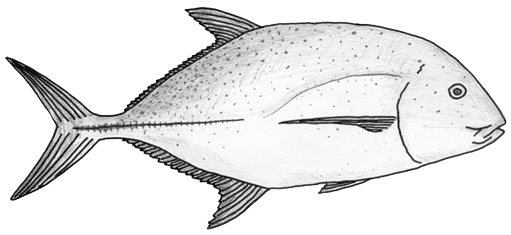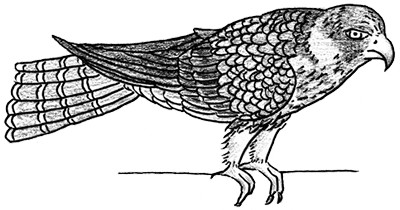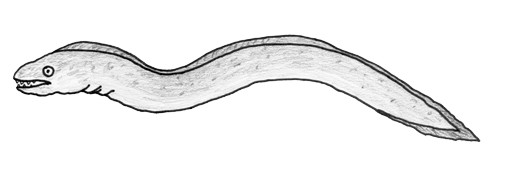m̈a1 n̼a verb, intransitive
PNCV, POc*mai
1 – come
| R̄a vari mo m̈a mo roro lo junge ima honin.The children came to play here in front of the house.Les enfants sont venus jouer ici, devant la maison. |
| Mo huren-i-a lo par̄u-na, ale mo m̈a mo m̈a.He put (the flower) on his head, then set off.Il mit (la fleur) sur sa tête, puis se mit en marche. |
2 – after a first verbhither; indicates the movement is towards the speaker (or the spot taken as reference). Corresponds either to the spatial movement of the subject or of the object
| Mo ku ai mo vali, mo re "Ha var̄i-a ha m̈a!"When they had made the water boil, he told them "Bring it here!" [lit. Take it and come]Ils chauffèrent l'eau jusqu'à ce qu'elle soit bouillante, puis il leur dit "Apportez-la ici !" |
| Soro ne mo sohan-i-a mo m̈a Kanal.He sent the same message (from Araki) here in Kanal. |
synonymsna
m̈a~2 n̼a possessive classifier
PNCV, POc*ma-
Grammar
Possessive classifier for drinkablesClassificateur Possessif lié à la boisson
| Nam je inu-a / inumi-a m̈a-ku ai v̈arung.I haven't drunk my tea.Je n'ai pas encore bu mon thé. |
m̈a-3 n̼a prefix
POc*ma-
m̈aja n̼aʧa noun
PNCV*mwazaspear, club
traditional wooden club, used especially to kill pigsmassue traditionnelle en bois, utilisée notamment pour tuer les cochons
| Mo var̄i-a no-no m̈aja, mo vjan-i-a lo par̄u-na.He seized his club, and smashed its head with it.Il saisit sa massue, et lui fracassa la tête avec. |
m̈aji n̼aʧi noun
small animalpetit animal
m̈ajihi n̼aʧihi noun, relational
colour (of s.th.)couleurs
| Nam lesi-a p̈ilo-m mo posi-a m̈ajihi-na mo viriha mo lulu.I was looking at your bald head, changing its colour from black to white.Je voyais ton crâne changer de couleur, tantôt foncé tantôt clair. |
m̈ajim̈ajihi n̼aʧin̼aʧihi verb, intransitive
multicoloured, variegatedmulticolore, bigarré
| Mo posi mo viriha mo m̈a mo lulu; mo m̈ajim̈ajihi-ha.It would change from black to white, it was full of colours.Il se transformait, tantôt noir, tantôt blanc, tantôt de toutes les couleurs. |
📘 Reduplication of m̈ajihi "colour".
m̈aji buluk n̼aʧi buluk noun
Birds
cow birdIndian Mynah, 25 cmoiseau vacheMartin Triste, Merle des Moluques, 25 cmAcridotheres tristis.
m̈ajonu n̼aʧonu noun

Fish
Bluefin trevally, bsl. Blukarong: reef fish, 50 cmCarangue bleue (angl. Bluefin trevally), poisson récifal, 50 cmCaranx melampygus.
m̈akomo n̼akomo
m̈ala1 n̼ala noun

PNCV*malahawk, bird of prey
Birds
1 – Swamp Harrier, k.o. hawk, 55 cmBusard australien, sorte de faucon, 55 cmCircus approximans.| M̈ala mo p̈isu jurung-i-a aka-n harivi.With its huge claws, the hawk made a hole in the Rat's canoe.Avec ses serres, le faucon perce le bateau du rat. |
m̈aloko n̼aloko adjective
PNCV*malolazy, tired, weak
Redupm̈alokoloko
m̈alue n̼alue verb, intransitive
(?) PNCV*mwalucome out
| Na pa m̈alue lo ima nene.I'm going to go out of this house.Je vais sortir de cette maison. |
| P̈ir̄a hosun jo pa m̈alue nene.This woman will leave this place (Araki).Cette femme partira d'ici (de l'île d'Araki). |
| Kam skul m̈alue kam sivo.We went out of the church. |
m̈alum n̼alum verb, intransitive
PNCV, POc*malumusoft, gentle, weak
quiet, slow, weakcalme, lent, faible
| Lo ran mo hese, Siho mo varai Hatou mo re "Om haraho m̈alum !One day, Kingfisher said to Hermit-crab "You crawl so slowly!"Un jour, le Martin-pêcheur dit au Bernard-l'ermite "Comme tu es lent à ramper!" |
r̄oho m̈alum verb, intransitive
stay quietkeep quiet, be silentrester tranquillese taire
| O varai-a jo r̄oho m̈alum!Tell him to keep quiet!Dis-lui de se taire [de se tenir tranquille] ! |
antonymv̈aoro
-m̈am n̼am possessive suffix
POc*-mami
Grammar
our (Exclusive): First plural Exclusive possessive suffixnotre (Exclusif): suffixe possessif 1ère p. pluriel exclusif
| Nko r̄ap̈alam̈am.You are our friend. |
| Vulu-m̈am jo sohe-na!(we want) our hair to be like that!(nous voulons) que nos cheveux soient comme ça ! |
seekam̈am
m̈am̈asa n̼an̼asa verb, intransitive
POc*mamasa
dry, parchedsec, desséché, sans eau
| Jara mo m̈am̈asa.It's dry, we're having a heatwave.Il fait sec, c'est la canicule. |
synonymkoru
m̈ana n̼ana
m̈an
verb, intransitive
PNCV*mana
| Mo le v̈a m̈akomo, mo le m̈ana.As they swam a bit further on, he started to laugh again.Il fit encore un bout de chemin (à la nage), puis il se remit à rire. |
antonymr̄angi
m̈apu n̼apu
PNCV*mabu-sibreathe deeply, rest
Averb, intransitive
Bnoun, relational
1 – (s.o's) breathing, breathrespiration, souffle de (qqn)
| Siho mo m̈alokoloko, m̈apu-na mo petepete mo jovi mo m̈ar̄e.The Kingfisher was so exhausted, breathless [his breath was short], that he collapsed and died.Le martin-pêcheur était exténué, complètement suffoqué [son souffle était court], si bien qu'il s'effondra et mourut. |
m̈apuhu n̼apuhu verb, intransitive
stink, have a bad smell
| viur̄u m̈apuhu"stinkwood", Dysoxylum gaudichaudianumstinkwood |
m̈ara2 n̼aɾa noun
PNCV*marapreserved breadfruit
breadfruit pit, a k.o. traditional biscuit made from breadfruit, and stocked as an extra food in case of hunger, due to low crops or hurricanesorte de pain ou biscuit réalisé avec des fruits à pain, et conservés comme aliment d'appoint en cas de disette
| Mo v̈ei-a m̈ara m̈ar̄a mo tilavo jam.They make breadfruit-biscuit when they lack yam.Ils préparaient du biscuit-de-fruit-à-pain car ils n'avaient plus d'ignames. |
m̈aranga n̼aɾaŋa verb, intransitive
PNCV*maraʔalight (in weight)
thin, punymaigre, chétif
antonymvaru
M̈arino n̼aɾino placename
Geo
Marino, mountain situated between Tanoa and Tasmalu, to the west of ArakiMarino, montagne située entre Tangoa et Tasmalu, à l'ouest d'Araki
| Om r̄oho r̄o lo r̄av̈alu-na M̈arino vo om r̄oho r̄o lo r̄av̈alu-na Op̈a?Do you live near Marino (to the west) or near Opa (an islet east of Araki)?Tu habites du côté de Marino (à l'ouest) ou du côté d'Opa (île à l'est d'Araki)? |
📙 En Araki, l'île d'Opa est prise comme repère pour indiquer la direction ouest (Cf. Har̄ua).
📘 In Araki, the island of Opa is considered a landmark to indicate the west (Cf. Har̄ua).
m̈ar̄a2 n̼ara
Apreposition, noun-like
Cf. m̈ar̄a ①
1 – fromdepuis, en venant de
| Jo re jo v̈a m̈ar̄a-n r̄e jara, o pa kaka ngisa?If we left from the same point, when would you arrive (on the other side)?En supposant que nous partirions d'un même point, quand arriveras-tu (de l'autre côté)? |
| sorosoro m̈ar̄a-n Rakithe language of [from] Araki |
2 – because ofà cause de
| Nam je rongo na karukaru lo r̄asi, m̈ar̄a p̈ahe.I don't feel like swimming in the sea because of the sharks.Je n'ai pas envie d'aller nager en mer, à cause des requins. |
| Raki mo pa juha mo sivo lo m̈asav̈a m̈ar̄a-na.And that's why Araki moved out into the ocean.Et c'est pour cela qu'Araki se déplaça vers l'océan. |
| m̈ar̄a sa?why?pourquoi ? |
| Om meje lap̈a m̈ar̄a no-m v̈ev̈ehina lo sorosoro m̈ar̄a-n Raki.Thank you so much for your work on Araki language. |
3 – about, regardingau sujet de, à propos de
| Na pa sorosoro m̈ar̄a-n Spoemalao.I'm going to speak about Spoemalao.Je vais vous parler de Spoemalao. |
| sorosoro m̈ar̄a-n Raki hosuthis story about Araki...cette histoire au sujet d'Araki... |
4 – in order to, fordans le but de, afin de, pour
| Sari nene m̈ar̄a m̈aji.This spear is for fish.Ce harpon-ci, c'est pour les poissons. |
5 – +verbis used for, meant for+ verbequi sert à, qui a pour fonction ou métier de
| Nene m̈ar̄a vahuren-i-a jolong botel.This is used for taking corks out of bottles.Ceci, c'est pour enlever les bouchons de bouteilles. |
| Na m̈ar̄a r̄ar̄a.[I am for cutting] My job is to cut wood, I'm a lumberjack.[je suis pour couper] Mon métier c'est de couper du bois, je suis bûcheron. |
Bsubordinator
1 – +Realisbecause+Realiscar, parce que
| Mo m̈ar̄ahu m̈ar̄a r̄am̈ar̄e mo r̄e han-i-a r̄ap̈ala-na mo iso.He was terrified at the idea that his friend had just been devoured by a devil.Il était terrorisé, à l'idée que son ami venait d'être dévoré par un démon. |
| Mo je rongo ha le sivo Raki mo re m̈ar̄a pana ha jolo lo r̄asi.They no longer want to go to Araki because they say they might drown in the sea.Ils ne veulent plus se rendre à Araki car, disent-ils, ils risquent de se noyer en mer. |
m̈ar̄aha n̼araha noun
laplap kni traditional wooden knife, used in cookingcouteau à laplap: couteau traditionnel en bois, utilisé pour le laplap
m̈ar̄ahu n̼arahu verb, transitive
PNCV*matakuPOc*ma-takut
Redupm̈ar̄am̈ar̄ahu
fear, be frightened, afraid
| Hariv mo rongo mo re mo m̈ar̄ahu.Hearing that, the rat was seized with fright.Entendant cela, le rat fut pris de peur. |
| Nam m̈ar̄am̈ar̄ahu p̈ahe.I fear sharks.J'ai peur des requins (Générique). |
m̈ar̄asala n̼arasala noun, relational
PNCV*mata-(ni)-saladoor = eye of road
doorporte
| Nam poe ima m̈ar̄asala-ra mo r̄aha lap̈a.I like houses with big doors.J'aime les maisons qui ont de grandes portes. |
| Mo r̄e ere m̈ar̄asala-ku.He opened my door.Il a ouvert ma porte. |
📙 Le possesseur de la porte (suffixe) est soit la maison, soit son propriétaire.
📘 The door's possessor (suffix) is either the house or its owner.
m̈ar̄e n̼are
m̈ar̄
verb, intransitive
PNCV, POc*mate
die, be dead
| Ha pa nak-i-a jo m̈ar̄e.They will strike him to death. [they will hit him he will die.] |
| Mo m̈ar̄e vo mo m̈auri r̄o?Is it dead or is it still alive?Est-il mort ou encore vivant? |
| Ale, mo m̈ar̄e mo r̄ur lo paisa sala...So, there was (this tree) that was standing dead by the wayside...Donc, il y avait (cet arbre) qui était mort sur le bord du chemin... |
antonymm̈auru
m̈asanga n̼asaŋa noun
PNCV, POc*saŋafork, crotch
Y-shaped or branching, forked, clovenfourchu, en forme de Y
| naho m̈asangaCloven-face (name of a fish)Face Fourchue (nom d'un poisson) |
m̈asav̈a n̼asað̼a
m̈asap̈a
noun, relational
PNCV*masawaspace, sky, open sea
1 – interval between two points, in-betweenintervalle entre deux points, entre-deux
| O huren-i-a v̈er̄ali lo m̈asap̈a-n rai jea nohosu mo rua.Put the bananas [in the interval between] between these two chairs.Pose les bananes entre [dans l'intervalle de] ces deux chaises. |
2 – open space, on earth or at seaespace ouvert, sur terre ou sur mer
| m̈akomo m̈asav̈aa small spaceune petite place |
3 – espopen sea, deep seaparticl'océan, le large
| Raki mo pa juha mo sivo lo m̈asav̈a m̈ar̄a-na.And that's why Araki moved out into the ocean.Et c'est pour cela qu'Araki se déplaça vers l'océan. |
| Mo v̈a mo sua mo v̈a lo m̈asav̈a.He continued to paddle, gradually moving further towards the sea.Il continuait à pagayer, s'éloignant vers le large. |
m̈asoli n̼asoli noun
variety of banana called "apple-banana", large sized and not very sweet, used as a vegetablevariété de banane dite "apple-banana", grosse et peu sucrée, utilisée en cuisine comme légume
seev̈er̄ali
m̈auri n̼auɾi noun, relational
PNCV*maʔuriPOc*maquri(p)
1 – life, lifetimevie, durée de la vie
| Lo m̈auri-ku, nam je m̈isi han r̄e.I had never eaten any in my whole lifetime.Dans ma vie, je n'en avais jamais mangé. |
2 – personal destiny, series of events that mark one's life, including one's deathspécdestinée personnelle, ensemble des événements marquant la vie, y compris la mort
| Hina salahese mo vse-i-a r̄aju r̄o lo m̈auri-ra.Several indications reveal a man's destiny.Plusieurs indices viennent révéler aux hommes leur destin. |
m̈auru n̼auɾu
m̈auri
m̈au
verb, intransitive
PNCV*maʔuriPOc*maquri(p)
Anthropology
2 – esprevive, come back to lifeparticvivre à nouveau après la mort, ressusciter
| R̄alme-ap̈e nia r̄alme r̄aju mo m̈ar̄e mo (le) m̈auru.Ralmeape is the devil for all the people who have died and who have come back to life.Ralmeape c'est le démon des hommes qui sont morts et qui ont ressuscité. |
m̈ena n̼ena verb, intransitive
PNCV, POc*mena
fruitripe, full grown ; ready to fall, about to rot
| Ale, huri-na mo m̈ena, huri-na mo v̈a vahure, mo sivo mo hojohojo.Then, when the (breadfruit) skin is ripe, when it falls off easily, that's when it is washed.Puis, lorsque la peau (du fruit-à-pain) est mûre, lorsqu'elle s'en va d'elle même, c'est alors qu'on vient les nettoyer. |
antonymparo
m̈enum̈enu n̼enun̼enu noun
Flora
small dead leaves, esp. floating on waterpetites feuilles mortes flottant à la surface de l'eau
| Nam m̈an p̈ala m̈enum̈enu honi mo sale r̄o lo r̄asi.I am laughing about those small leaves which are floating on the sea.Je ris de ces petites feuilles qui flottent sur la mer. |
seerahafeuilleleaf
-m̈im n̼im possessive suffix
Grammar
your (Pl): Second plural possessive suffixvotre: suffixe possessif 2ème pluriel
| Ha ngingisa na lesi hojo-m̈im!Smile, show me your teeth!Souriez, que je voie vos dents ! |
seekam̈im
m̈isi n̼isi
m̈is
Tense Aspect Mood marker
| Lo wik mo v̈a mo iso, nam rojorojo, kesi nam pa m̈isi rojo.Last week I was ill; and I'm still not well today.La semaine dernière, j'étais malade ; et maintenant je suis toujours malade. |
synonymle
2 – with Negation jenot yet. Auxiliary word followed by the verbavec négation jene... pas encore. Auxiliaire précédant le verbe
| Lo m̈auri-ku, nam je m̈isi han r̄e.I'd never yet eaten any in my whole life.Dans ma vie, je n'en avais encore jamais mangé. |
| R̄aju ne, mo je m̈isi r̄ai-a.This man has not yet been circumcisedCet homme n'a pas encore été circoncis. |
